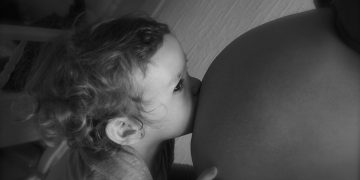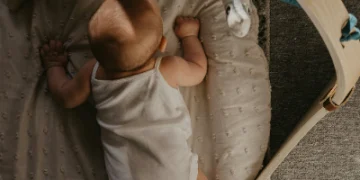As a parent, one of the most exciting and rewarding experiences is watching your toddler grow and develop. From their first steps to their first words, each milestone reached is a cause for celebration. But how can you ensure that your toddler is on track for healthy development? A milestones chart can be a valuable tool in tracking your child’s progress and identifying any areas where they may need extra support.
What are Toddler Milestones?
Toddler milestones are a set of skills or abilities that most children reach by a certain age. These milestones are divided into different categories, including physical, cognitive, social, and emotional development. While every child develops at their own pace, reaching these milestones within a certain timeframe can indicate that your child is on track with their development.
Why Are Toddler Developmental Milestones Important?
Developmental milestones are key skills or abilities that most children reach by a certain age. These milestones are important indicators of your child’s overall development and can help you and your pediatrician monitor their progress. Early identification of developmental delays can lead to early intervention, which is crucial for ensuring that your child reaches their full potential.
By tracking your child’s milestones, you can also gain a better understanding of their unique strengths and challenges. This can help you tailor your parenting approach to best support their individual needs and create a nurturing environment for their growth and development.
Common Toddler Developmental Milestones
Every child develops at their own pace, but there are certain milestones that most toddlers reach around the same age. Here is a comprehensive chart of common developmental milestones for toddlers:
Physical Development Milestones
Physical development milestones refer to the growth and development of a child’s body. These milestones include activities such as rolling over, sitting up, crawling, walking, and running. By tracking your child’s physical development milestones, you can ensure that they are meeting the necessary requirements for their age.
Key Physical Development Milestones:
- Rolling over: 4-6 months
- Sitting up: 6-8 months
- Crawling: 7-10 months
- Walking: 12-18 months
- Running: 2-3 years
Cognitive Development Milestones
Cognitive development milestones refer to a child’s ability to think, learn, and solve problems. These milestones include activities such as recognizing familiar faces, following simple instructions, and engaging in pretend play. By tracking your child’s cognitive development milestones, you can ensure that they are developing the necessary skills for learning and problem-solving.
Key Cognitive Development Milestones:
- Recognizing familiar faces: 3-6 months
- Following simple instructions: 12-18 months
- Engaging in pretend play: 2-3 years
Social and Emotional Development Milestones

Social and emotional development milestones refer to a child’s ability to interact with others and regulate their emotions. These milestones include activities such as making eye contact, showing empathy, and expressing a range of emotions. By tracking your child’s social and emotional development milestones, you can ensure that they are developing healthy relationships and coping mechanisms.
Key Social and Emotional Development Milestones:
- Making eye contact: 2-3 months
- Showing empathy: 18-24 months
- Expressing a range of emotions: 2-3 years
Language Development
- 12-18 months: saying a few words, understanding simple questions, waving goodbye
- 18-24 months: using two-word phrases, naming familiar objects, following simple directions
- 24-36 months: using three-word sentences, asking “why” questions, retelling simple stories
The Importance of Tracking Toddler Development
Tracking your child’s developmental milestones is essential for several reasons. Firstly, it allows you to monitor your child’s progress and identify any potential delays or concerns early on. Early intervention is crucial for addressing developmental delays and ensuring that your child receives the support they need to thrive.
Additionally, tracking developmental milestones can help you celebrate your child’s accomplishments and recognize their unique strengths and abilities. By acknowledging and supporting your child’s development, you can foster their self-esteem and confidence as they grow.
Comprehensive Toddler Development Milestones Chart
Below is a comprehensive chart outlining the key developmental milestones for toddlers in the areas of physical, cognitive, social, and emotional development. Use this chart as a guide to track your child’s progress and celebrate their achievements along the way.
| Developmental Area | Milestone | Age Range |
|---|---|---|
| Physical | Rolling over | 4-6 months |
| Physical | Sitting up | 6-8 months |
| Physical | Crawling | 7-10 months |
| Physical | Walking | 12-18 months |
| Physical | Running | 2-3 years |
| Cognitive | Recognizing familiar faces | 3-6 months |
| Cognitive | Following simple instructions | 12-18 months |
| Cognitive | Engaging in pretend play | 2-3 years |
| Social and Emotional | Making eye contact | 2-3 months |
| Social and Emotional | Showing empathy | 18-24 months |
| Social and Emotional | Expressing a range of emotions | 2-3 years |
How to Support Your Toddler’s Development

There are many ways you can support your toddler’s development and help them reach their full potential. Here are some tips to help you nurture your child’s growth:
Encourage Play and Exploration
Play is essential for your toddler’s development. Provide them with a variety of toys and activities that encourage exploration, creativity, and problem-solving. Allow your child to play independently and with other children to develop their social skills and creativity.
Read and Talk to Your Child
Reading to your child is one of the best ways to support their language development. Make reading a daily habit and engage your child in conversation about the story. Encourage your child to ask questions and express their thoughts and feelings.
Provide Opportunities for Physical Activity
Physical activity is important for your toddler’s overall health and development. Encourage your child to run, jump, climb, and play outdoors. Consider enrolling your child in age-appropriate sports or activities that promote physical coordination and strength.
Set Clear Boundaries and Expectations
Setting clear boundaries and expectations helps your child feel safe and secure. Be consistent in your discipline and provide positive reinforcement for good behavior. Encourage your child to take on age-appropriate responsibilities and tasks to build their confidence and independence.
Tracking Your Toddler’s Growth
Now that you have a better understanding of the key milestones that toddlers typically reach, it is important to know how to track your child’s growth effectively. Here are some tips to help you monitor your toddler’s progress and ensure that they are meeting their developmental milestones:
Keep a Developmental Journal
One of the best ways to track your toddler’s growth is to keep a developmental journal. This can be as simple as jotting down notes about your child’s milestones, behaviors, and accomplishments on a regular basis. By keeping track of your child’s progress, you can easily identify any delays or issues that may arise and address them promptly.
Use Developmental Checklists
Developmental checklists are a great tool for tracking your toddler’s growth and development. These checklists outline the key milestones that children typically reach at each stage of development, making it easy for parents to monitor their child’s progress and identify any potential delays. There are many online resources available that provide developmental checklists for toddlers, or you can ask your pediatrician for a copy.
Attend Well-Child Visits
Well-child visits are an important part of monitoring your toddler’s growth and development. During these visits, your pediatrician will assess your child’s physical, cognitive, and social-emotional development, as well as provide guidance on how to support your child’s growth. Be sure to attend all scheduled well-child visits and discuss any concerns or questions you may have with your pediatrician.
Common Questions About Toddler Development
Here are some common questions that parents may have about their toddler’s development:
When Should My Child Start Talking?
Most children start saying their first words around 12-18 months. By 24 months, most toddlers can use simple phrases and sentences. If your child is not speaking by the age of 2, it’s important to consult with your pediatrician to rule out any underlying issues.
How Can I Tell If My Child Is Meeting Their Developmental Milestones?
Monitoring your child’s developmental milestones can help you track their progress. If you have concerns about your child’s development, talk to your pediatrician. They can provide guidance on how to support your child and may recommend further evaluation if needed.
What Are Some Signs of Developmental Delays?
Some signs of developmental delays in toddlers include limited eye contact, delayed speech or language skills, difficulty with fine or gross motor skills, and challenges with social interactions. If you notice any of these signs, consult with your pediatrician for further evaluation.
What should I do if my toddler is not meeting a milestone?
If you notice that your toddler is not meeting a specific milestone, it is important to discuss your concerns with your pediatrician. Your pediatrician can assess your child’s development and provide guidance on next steps, which may include early intervention services or referrals to specialists for further evaluation.
Is it normal for toddlers to reach milestones at different ages?
Yes, it is completely normal for toddlers to reach milestones at different ages. Every child develops at their own pace, and some may reach certain milestones earlier or later than others. However, if you have concerns about your child’s development, it is always best to consult with your pediatrician for guidance.
How can I support my toddler’s growth and development?
There are many ways you can support your toddler’s growth and development, such as providing a safe and stimulating environment, engaging in interactive play, reading books together, and encouraging exploration and curiosity. By creating a nurturing and supportive environment for your child, you can help them reach their full potential and thrive.
Conclusion
Understanding and tracking your child’s developmental milestones is essential for ensuring they are on the right path for growth and development. By using the comprehensive chart provided in this article, you can monitor your child’s progress and celebrate their achievements along the way. Remember, every child develops at their own pace, so it’s important to be patient and supportive as they reach each new milestone. With the right guidance and support, you can unlock the wonders of toddler development and watch your child thrive.
Remember to consult with your child’s pediatrician if you have any concerns about their development or if you notice any delays in reaching milestones. Early intervention and support can make a significant difference in your child’s development and overall well-being.
Enjoy the journey of watching your child grow and develop, and marvel at the incredible wonders of toddler development!
Stay tuned for more articles and resources to support you on your parenting journey. Thank you for reading!







































